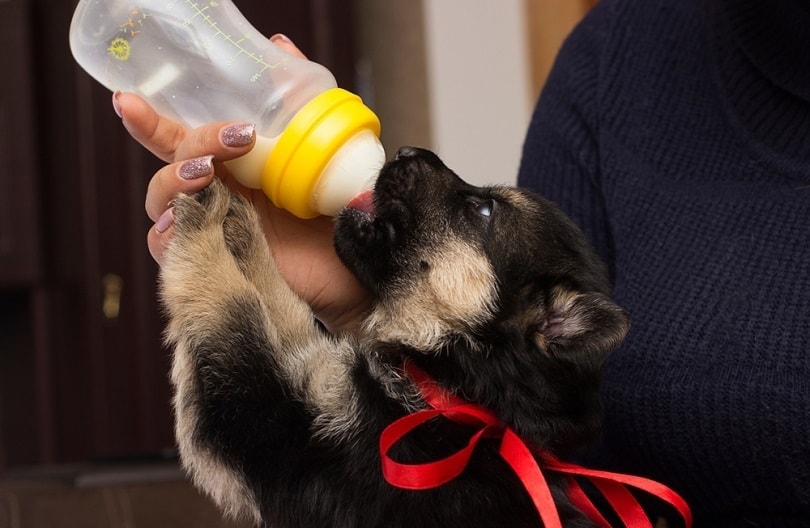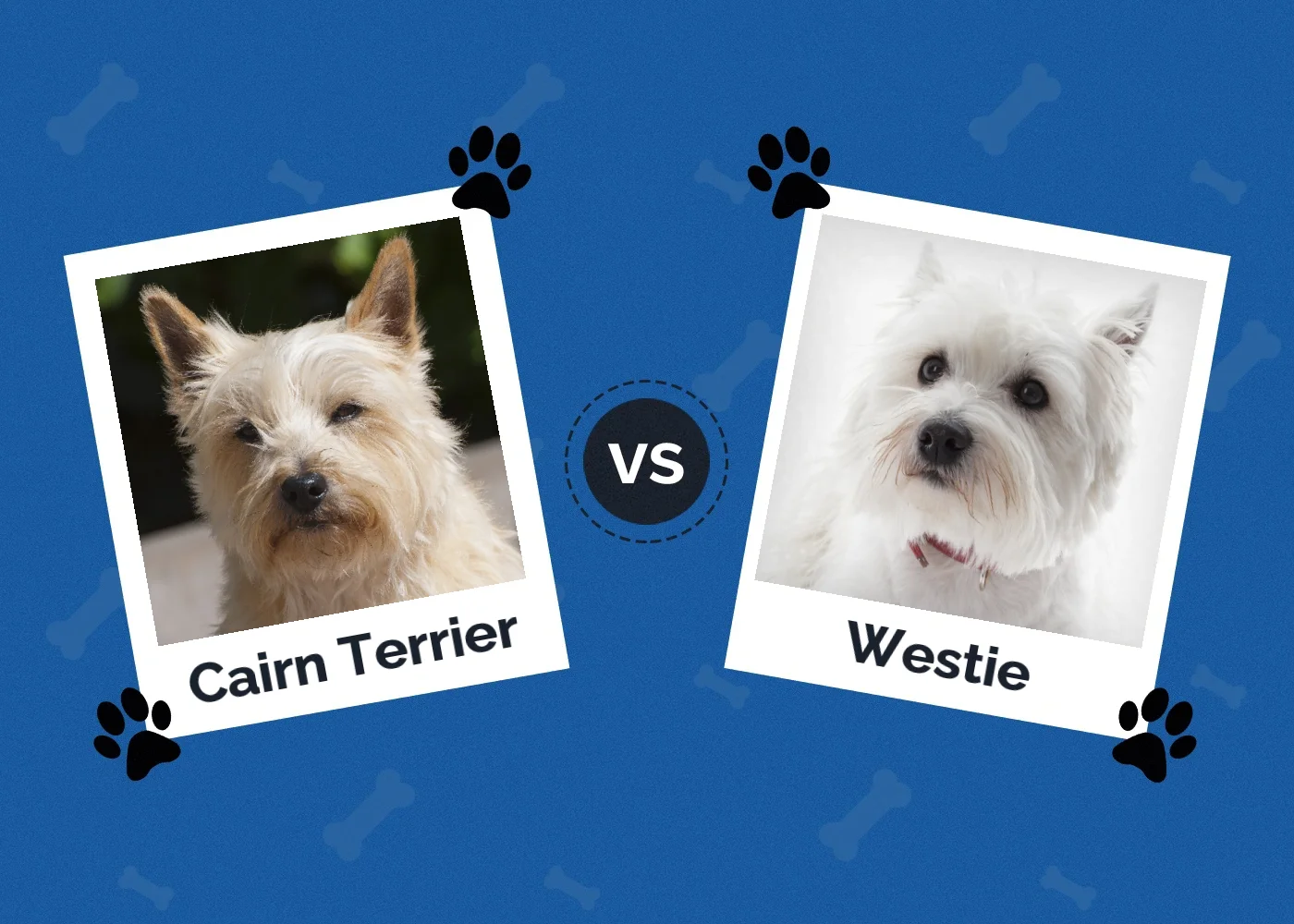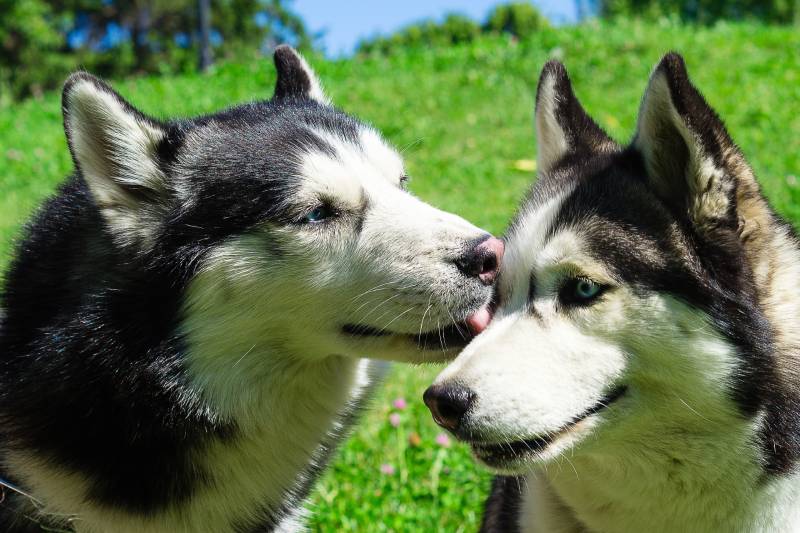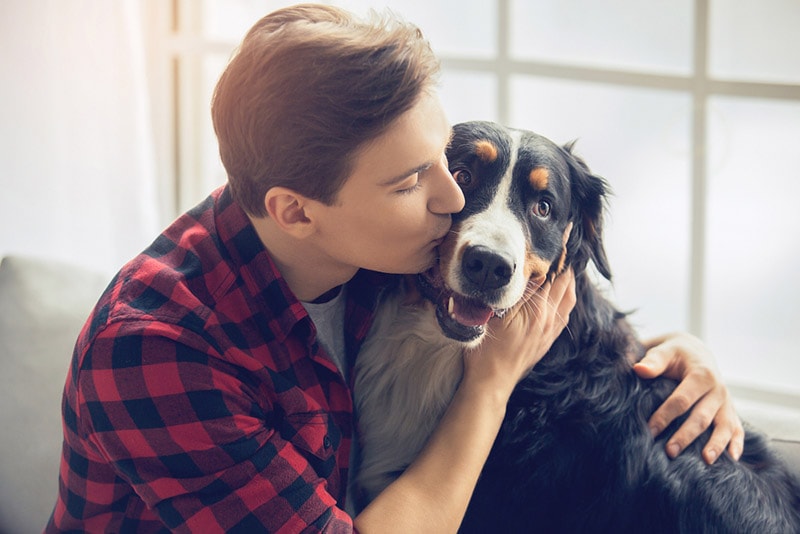Can Dogs Eat Dairy? The Interesting Answer!
By Jessica Kim
Updated on

A dog’s ability to consume dairy will depend on its tolerance to lactose. While dairy doesn’t contain any elements that are toxic to dogs, dogs can still get an upset stomach if they’re not able to process lactose.
So, it’s safe for some dogs to eat dairy products, like milk, cheese, and yogurt. However, these foods should be given in moderation. Dogs that consistently get an upset stomach from eating dairy products should refrain from eating them, even if they enjoy them.
Dogs & Dairy
Despite being a popular treat to give to dogs, many dogs are actually intolerant to dairy.1 You’ll find that most dogs aren’t able to drink large quantities of cow’s milk because of the lactose content. However, they can enjoy small portions of cheese and yogurt because they’re easier to digest.
So, it’s not recommended to give dogs milk, whipped cream, or ice cream because they have higher lactose content.2 Most dogs can enjoy small pieces of cheese with lower concentrations of lactose. Dogs may be able to eat hard cheeses, like cheddar, parmesan, and Swiss cheese, because they have less lactose in them.
Signs of Lactose Intolerance in Dogs
Some dogs will experience gastrointestinal upset when they eat dairy. If your dog exhibits any of the following signs of lactose intolerance, make sure to stop feeding it dairy:
- Bloating
- Gassiness
- Diarrhea
- Abdominal discomfort

Does Dairy Have Health Benefits for Dogs?
Dairy products do have some considerable health benefits. Milk is an excellent source of calcium and vitamin D. Low-fat dairy products may also reduce the risk of heart disease.
Some dairy products, like Greek yogurt, may lower the risk of obesity and type 2 diabetes. Dogs that aren’t lactose intolerant may benefit from eating plain yogurt after experiencing an upset stomach due to its high probiotic content.
While dairy has health benefits, plenty of other foods can give the same nutrients to dogs without the risk of digestive issues. Most dairy products also have a high fat content, and milk and cream contain a lot of sugar. So, they should be given in moderation to prevent excessive weight gain and obesity.
It’s also important to prevent feeding your dog dairy products with artificial sweeteners, particularly xylitol. Xylitol is highly toxic to dogs and can lead to hypoglycemia and liver failure.

How to Safely Feed Dairy to Dogs
Many dogs can enjoy eating hard cheeses and plain yogurt as occasional treats. Just make sure to give them a small amount at first, monitor their condition, and look for any signs of lactose intolerance.
If your dog really enjoys eating cheese, try to feed it dog treats with cheese in them. These cheeses are more dog-friendly, and the treats combine other ingredients that are easy for dogs to digest. So, your dog can still enjoy the flavor without consuming as much dairy.
Refrain from feeding your dog milk, ice cream, and whipped cream. Their high lactose and sugar content makes them unnecessary to a dog’s diet and can contribute to health complications.
Dogs that are overweight or obese shouldn’t be given dairy products, as introducing more fat to their diet will make weight loss even more challenging.

Conclusion
Overall, your dog’s ability to eat dairy will depend on its tolerance to lactose. However, dairy products aren’t the healthiest foods for dogs, so only give them as special treats that your dog can eat every once in a while. Dairy has no place in being a main part of a dog’s diet.
Fortunately, there are many other snacks that dogs can eat safely. So, make sure to weigh the benefits and risks of dairy before feeding it to your dog. Lastly, refrain from continually giving your dog dairy products if it shows any signs of gastrointestinal upset or lactose intolerance.
See Also:
Featured Image Credit: BublikHaus, Shutterstock












